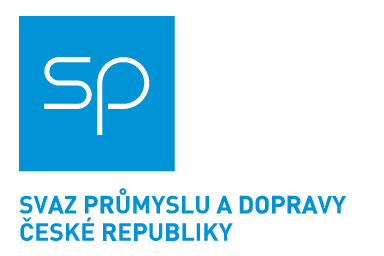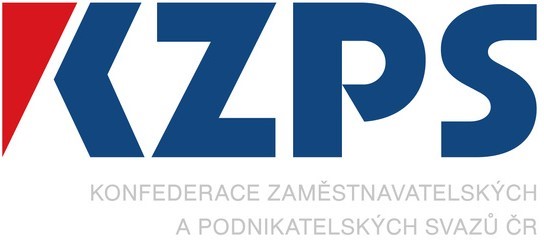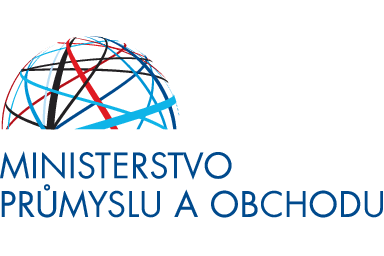INNOVATION & GREEN ECONOMY
Every business can be innovative! But support to innovative solutions is needed!
Brussels, 14/7/2010 – Despite the mid-summer timing, 50 representatives of European Commission, European Parliament, Member States, business associations, regions, research institutions and other stakeholders gathered to discuss with 14 distinguished speakers the various aspects of innovation at a conference organised by CEBRE and Czech Permanent Representation, focusing on innovations in the field of energy and smart grids, innovative solutions in environment and transfer of knowledge.
Deputy Czech Permanent Representative Jana Reinišová opened the conference outlining the great priority given to promoting innovation in the coming months through the EU2020 strategy, Innovative Union flagship initiative and innovation as a topic of autumn Council of Ministers and European Council. “It is much easier to support research than innovation, thus we have to keep trying to invest in innovation and find suitable benchmarks,” said Reinišová. David Harmon, Member of the Cabinet of Commissioner Máire Geoghegan-Quinn, stressed the strong political dedication of all parties involved to invest more in research and innovation and to create Single Innovation Market. “Recently established Group for Indicators examines what are the most effective indicators to be used to measure development in innovation, as the current indicator – share of investment to R&D on GDP does not reflex the compexity of innovations” added Harmon. Secretary General of EUROCHAMBRES Arnaldo Abruzzini voiced his disappointment: “Businesses are the innovation drivers! And not only those in research! Nonetheless businesses need to have motivation through some fiscal stimulus, to ensure better access to finance and to stabilise their human resources through better skills match.”
Member of ITRE Committee Paul Rübig MEP called for better implementation of common objectives: “There are several strategies and legislation in place already, including the 3rd energy package, but the crucial question now is the delivery – how do Member States implement them.” Discussions about innovation in energy sector was further motivated through a presentation of European Commissions approach to smart grids by Kristian Takač from DG ENER and complemented by Milan Špaténka, Director of Distribution Grids Development, ČEZ Group. “Czechs are at the forefront of many international projects, already implementing a Smart Region pilot project in Vrchlabí (CZ) and co-funding the European Electricity Grid Initiative (EEGI), said Špaténka. “In the field of environment many people still limit the scope of innovation – but it can go from green technologies and working with nature through eco-system based approach to green infrastructure,” said Ladislav Miko, Director at DG ENVI. Several innovative environmental solutions were presented by Miroslav Šindlar, Managing Director of company ŠINDLAR EU. Jean-Roger Drèze from Belgian Federal D-G Environment completed the overall picture by presenting Belgian Presidency plans, calling for “strategic and innovative subsidiarity” to speed delivery.
Knowledge transfer is a crucial element of innovation, enabling to transfer the outcomes of research into growth and jobs. European Commission supports this transfer through initiatives such as the Regions of Knowledge programme, mentioned Olivier Brunet from DG Research. Tomáš Hruda, Director of CEITEC – Central European Institute of Technology, pointed out the role of regional innovation strategies and cooperation of business, education and public/regional authorities in this respect. Stefaan Vanderstraeten from Daikin Europe called for better publicity of successful innovative projects as even the final consumer has to be educated about the impact of innovation. Martin Hlaváček from Czech Permanent Representation drew conclusions from the debate saying that we seem to know quite well about the challenges ahead but have difficulties to agree on how to face them. Folker Franz from BUSINESSEUROPE concluded by a strong message stating that the environmental cost of a product should not only be measured during its production phase but during its lifecycle.
Program of seminar:
14h00 Opening & Introduction
- H.E. Jana REINIŠOVÁ, Deputy Czech Permanent Representative to the EU
- David HARMON, Member of the Cabinet of Commissioner Máire GEOGHEGAN-QUINN
- Arnaldo ABRUZZINI, Secretary General of EUROCHAMBRES
14h45 Panel on “INNOVATION IN MARKETS” – intelligent networks
- Kristian TAKAC, Security of Supplies, Energy Markets & Networks Directorate, DG ENER, European Commission (presentation to download)
- Milan ŠPATÉNKA, Director of Distribution Grids Development, ČEZ Group (presentation to download)
- Paul RÜBIG, Member of European Parliament, Committee on Industry, Research and Energy
15h30 Coffee break
16h00 Panel on “INNOVATION IN ENVIRONMENT” – innovative solutions
- Ladislav MIKO, Director for Nature and biodiversity, agriculture, soils and forests at DG ENVI, European Commission (presentation to download)
- Miroslav ŠINDLAR, Directing manager and owner of ŠINDLAR company (presentation to download)
- Jean-Reger DREZE, Belgian Federal Public Service (presentation to download)
16h45 Panel on “REGIONAL PRIORITIES IN INNOVATIONS” – transfer of knowledge
- Olivier BRUNET, manager of Regions of Knowledge programme, Unit B4 – Regions of Knowledge and Research Potential, DG Research, European Commission (presentation to download)
- Tomáš HRUDA, Director of CEITEC – Central European Institute of Technology – case study “investing in research and innovation” (presentation to download)
- Sfefaan VANDERSTRAATEN, Senior Executive Daikin Europa
17h30 Closing remarks
- Martin HLAVÁČEK, Head of Agriculture and Environment Unit, Czech Permanent Representation
- Franz FOLKER, Senior Policy Advisor at BUSINESSEUROP
17h40 Small reception / standing dinner
Background documents:
News and projects of parnters:
The partnership of IUCN, PwC, ECNC, ELO and Blue 4You on behalf of the European Commission, invites you to join in and get actively involved in the European Business and Biodiversity Platform. The B@B platform aims at supporting all businesses integrating biodiversity into their core activities. The 6 following sectors have been prioritized by the European Commission for the first year (2010): agriculture, food supply industry, forestry, extractive industries, financial sector and tourism.
The purpose of this seminar is to present and discuss three tools developed by the federal public authority to support innovation as a factor of competitive and sustainable growth. The seminar will focus on standardisation, intellectual property and public procurement. More details are available in the presentation note at annex (programme to download)





